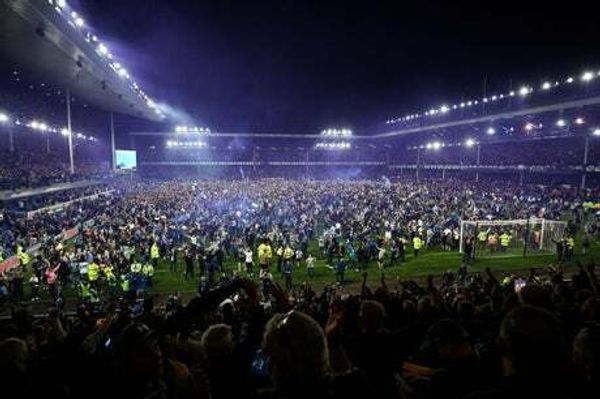
London (AFP) - Football arrests in England and Wales reached their highest level for eight years last season, while pitch invasions more than doubled compared to pre-pandemic levels, according to data from the British Home Office.
A series of matches towards the end of the campaign were marred by players being assaulted by pitch-invading fans.
Premier League clubs this week agreed to give pitch invaders and supporters using smoke bombs or pyrotechnics a minimum one-year ban.
A pitch invasion of some kind was recorded at 441 matches last season, a 127 percent increase on the figure for the 2018-19 season, the last full campaign to be played without any Covid-19 restrictions.
The 2,198 football-related arrests recorded last season was the highest figure since 2013-14.
Chief Constable Mark Roberts, the National Police Chiefs' Council lead for football policing, said there needed to be "collective responsibility" from fans to stamp out criminal behaviour.
"Once there are several hundred people on the pitch it's impossible to separate those people who just want to enjoy themselves from those who want to assault players, threaten players and aggravate the opposition fans, and then it gets difficult to manage," said Roberts.
Chief Constable Roberts added alcohol was a "perennial driver" of poor behaviour in football, but said cocaine was a rising cause for concern.
"When we do operations on the rail network and when we do operations at grounds, we are consistently finding the presence of cocaine," he said.
"Clearly it's a prevalent thing to take at football and we need to clamp down on that.There is ample evidence that cocaine, particularly with alcohol, in a heightened state of emotion which you often get with football, leads to aggressive and violent behaviour."
That cocktail of drink and drugs was blamed as the root cause for the disorder which marred the Euro 2020 final at Wembley in July last year.
Football banning orders have recently been extended to cover convictions for online hate crime linked to the sport and convictions for selling or taking Class A drugs will also come under the banning order regime from October.










